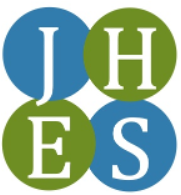ABSTRACT
The drastic increased use of telenutrition during the COVID-19 pandemic allows the provision of nutrition services despite the physical restrictions. The effective implementation of any mode of healthcare delivery, including telenutrition, is heavily influenced by client acceptance. This study generally aims to analyze the acceptability of telenutrition among patients of the IHNF Nutrition Wellness Clinic. Ten (10) semi-structured interviews were conducted using the theoretical framework of acceptability from July to August 2022. Participants were purposively sampled from the patients of the clinic. The qualitative analysis revealed that the participants were highly satisfied with their telenutrition consultations and even found telenutrition an acceptable alternative to in-person visits mainly due to its thoroughness, convenience, accessibility, cost, and time efficiency. However, several participants expressed concerns about the need for a doctor’s referral to avail of the consultation and the effect of internet stability on the telenutrition consultation. Nonetheless, the high satisfaction with telenutrition driven by the patients’ positive experience outweighs the patient-expressed concerns about internet stability and access barriers associated with the patients’ recent telenutrition consultation.
ABOUT THIS ARTICLE
Authors and Affiliations
Krecencia M. Cruz* and Aiza Kris M. Bernardo
Institute of Human Nutrition and Food. College of Human Ecology, University of the Philippines Los Baños, College 4031, Laguna, Philippines
*correspondence: kmcruz8@up.edu.ph
| Received | Accepted | Published |
| 2 November 2022 | 8 March 2023 | 23 March 2023 |
Cite this article
Cruz, K. M. & Bernardo, A. K. M. (2023). Qualitative analysis of acceptability of telenutrition among adult patients in IHNF Nutrition Wellness Clinic during the COVID-19 pandemic. Journal of Human Ecology and Sustainability, 1(1), 2. https://doi.org/10.56237/jhes22007
Rights and permissions
This is an open access article distributed under the terms and conditions of the Creative Commons Attribution (CC BY) license (https://creativecommons.org/licenses/by-nc-nd/4.0/), which permits unrestricted use, distribution, and reproduction in any medium, provided you give appropriate credit to the original author(s) and the source, provide a link to the Creative Commons license, and indicate if changes were made.
